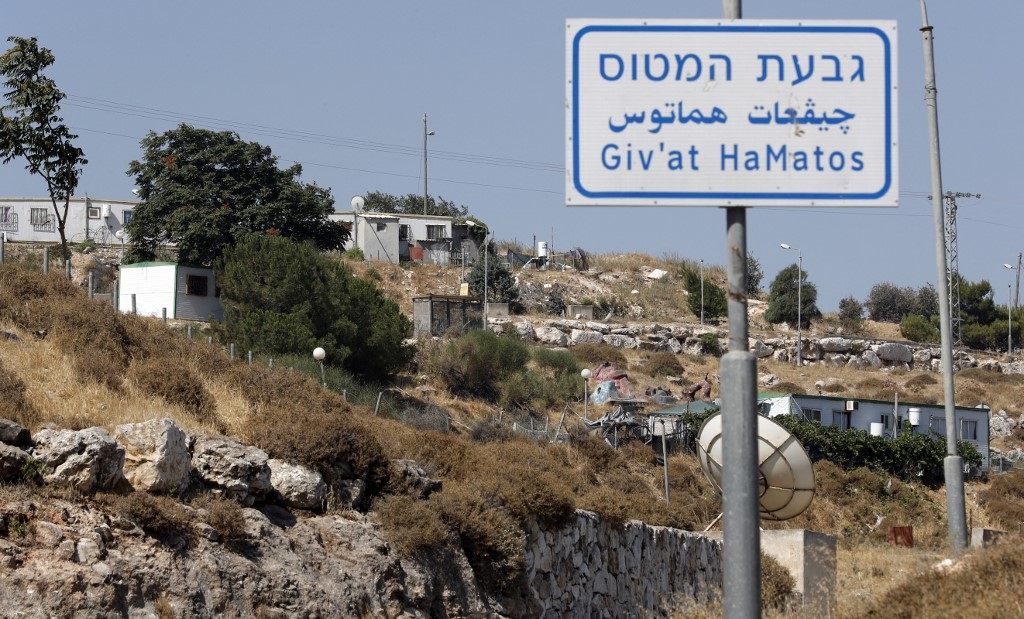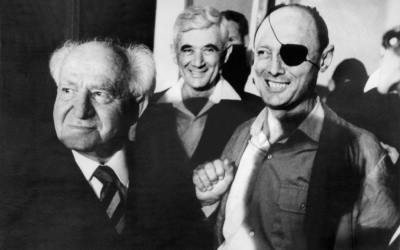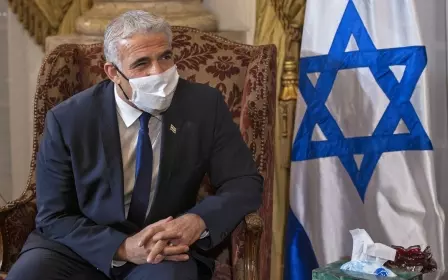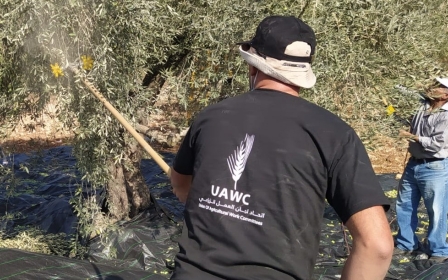Israeli official lashed out at European diplomats over settlement questions: Report

An Israeli official yelled at a delegation of European diplomats during a recent meeting at Israel's foreign ministry, after the envoys raised objections to Israel's settlement-building plans, Israeli media reported on Thursday.
The meeting, which took place two weeks ago and was supposed to be a routine discussion about the situation in the occupied West Bank, quickly deteriorated into a severe reprimand from the Israeli minister, the Israeli news website Walla reported.
New MEE newsletter: Jerusalem Dispatch
Sign up to get the latest insights and analysis on Israel-Palestine, alongside Turkey Unpacked and other MEE newsletters
The British-led delegation presented concerns to foreign ministry official Aliza Bin Noun about the construction of settlements in occupied East Jerusalem's Givat Hamatos neighbourhood and in the E1 area between Jerusalem and the Ma'ale Adumim settlement.
According to Walla, the concerns were also presented in an official letter to Bin Noun, Israel's former ambassador to France who now serves as the director of the European Affairs Department at the foreign ministry, who responded by berating the diplomats.
"After everything the new Israeli government has been doing for the Palestinians, you come to complain?" Bin Noun was quoted by Walla as saying.
Refusing to address the points raised by the diplomats and ambassadors from 16 European countries, Walla reported that Bin Noun reportedly told them, "You are pissing me off."
The Europeans said the meeting broke down and concluded in a "big crisis", according to Walla.
Lior Haiat, an Israeli foreign ministry spokesperson, appeared to confirm the report, telling Walla that "sometimes, European positions are presented in a manner that is unacceptable to us and this deserves a sharp and clear response, even if our reaction isn't nice toward the Europeans".
Demolishing Palestinian homes
The December incident came as the new government led by Israeli Prime Minister Naftali Bennett has worked on improving relations with European allies, which had frayed under former prime minister Benjamin Netanyahu.
Israeli Foreign Minister Yair Lapid has met with representatives of some of Israel's biggest critics, including Ireland, in an attempt to improve relations with those countries.
But Bennett's government has approved the building of thousands of settlement units, which have created concerns for a number of western countries, including the United States, with President Joe Biden saying that they "erode" prospects of a two-state solution.
Israel also makes it impossible for Palestinians in East Jerusalem to build new homes. Since it took control of the city in 1967, it has not approved a single new neighbourhood for Palestinians.
As of May last year, Israel had demolished 61 properties owned by Palestinian residents of East Jerusalem: 33 were houses and the rest were used as commercial and non-residential buildings, according to Ir Amim, an Israel rights group.
Israel took control of East Jerusalem during the 1967 Six-Day War, before annexing it in a move that has never been recognised by most of the international community.
Until a political settlement to the conflict is reached, both the eastern and the western sectors of Jerusalem will continue to have international status under international law.
Middle East Eye delivers independent and unrivalled coverage and analysis of the Middle East, North Africa and beyond. To learn more about republishing this content and the associated fees, please fill out this form. More about MEE can be found here.






